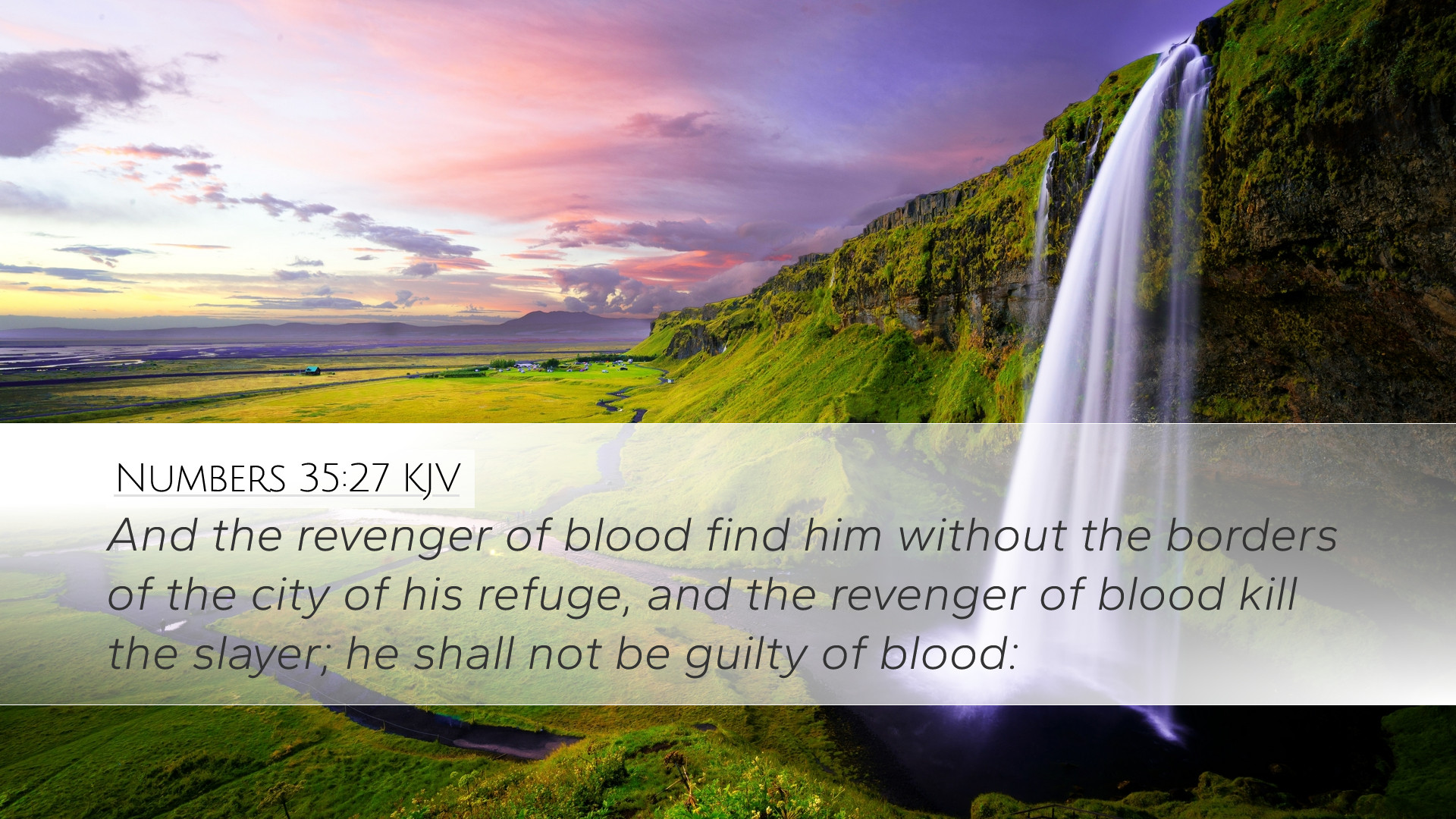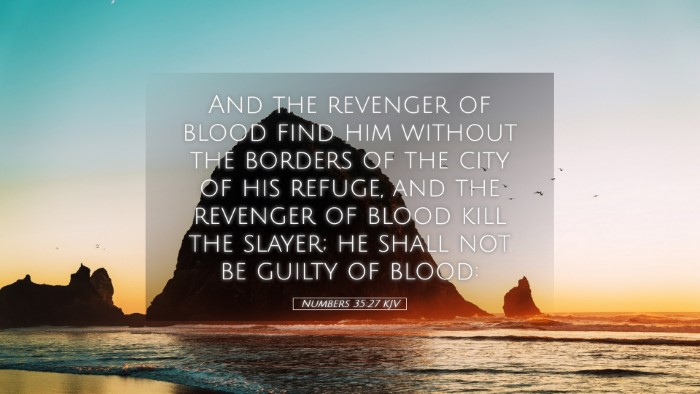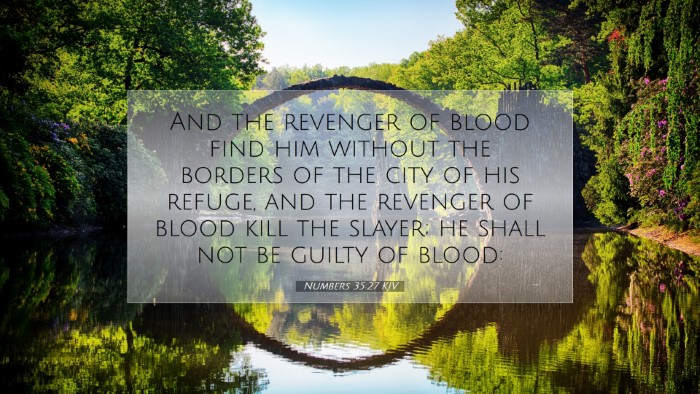Commentary on Numbers 35:27
Verse Text: "And the revenger of blood find him without the borders of his city of refuge, and the revenger of blood kill the slayer; he shall not be guilty of blood."
Introduction
This verse from the book of Numbers addresses a significant aspect of the Israelite legal system regarding cities of refuge and the laws surrounding unintentional manslaughter. Understanding the context and implications of this verse provides deep insights into God’s principles of justice, mercy, and protection.
Contextual Background
Numbers 35 is set within the broader narrative of the Israelites' journey through the wilderness, as they prepare to enter the Promised Land. God emphasizes the importance of justice and the establishment of cities of refuge signifies His care for those who may unintentionally harm others. This chapter outlines both the provision for the unintentional manslayer and the rights of the avenger of blood.
Commentary Insights
1. The Role of the Cities of Refuge
Matthew Henry posits that the cities of refuge serve as a divine institution to protect individuals who commit manslaughter without malicious intent. These cities represent a place where mercy prevails over judgment, allowing for the accused time to seek a fair trial.
2. The Revenger of Blood
Albert Barnes notes that the revenger of blood, typically a closest relative of the deceased, holds a critical role in ancient Israelite culture. While obligated to uphold justice, this verse illustrates the delicate balance between justice and the possibility of vengeance. The conditions under which the revenger could act are strict, emphasizing God’s desire for order.
3. Legal and Moral Implications
Adam Clarke highlights the legal ramifications detailed in this verse. If an individual who slays another unintentionally leaves the city of refuge, they expose themselves to the avenger’s actions. This legal protection was bound to the city’s limits, symbolizing the boundary between safety and threat. Doug MacIntosh explains that the avenger’s actions outside this boundary could render them guilty of shedding innocent blood.
4. The Concept of Guilt and Protection
- Understanding Guilt: The idea that the slayer is not guilty if the killing was unintentional provides a framework for distinguishing between intentional murder and accidental death. The text emphasizes that guilt is determined by intent.
- Divine Justice: The verse reflects God's justice that allows for protection while delineating clear consequences for actions that breach His laws. As noted in Matthew Henry, it illustrates that God is a God of order, preventing chaos in society.
- Judicial Fairness: The laws governing the cities of refuge and the revenger’s rights ensure judicial fairness and aim to prevent the cycle of revenge that often leads to further bloodshed.
Theological Reflections
This passage prompts deeper theological reflection on God’s nature as both just and merciful. The cities of refuge can be seen as a foreshadowing of the refuge that believers find in Christ. Just as the cities offered safety from the avenger, Christ offers salvation from sin and death.
1. Jesus as our Refuge
In the New Testament context, the plea for refuge finds fulfillment in Christ, who provides grace and salvation for all who seek Him, regardless of their past transgressions. This connection can be emphasized during sermon applications, allowing congregations to grasp the depth of God’s mercy.
2. Moral Instruction
Pastors can draw parallels between the legal stipulations of the Old Testament and contemporary issues of justice within society, advocating for compassion and the importance of intention in our actions. The historical account implores believers to reflect on the implications of their decisions, ensuring their actions align with divine principles.
Conclusion
Numbers 35:27 encapsulates the complexity of justice and mercy within the framework of divine law. As we study this verse, it challenges us to consider our motives, understand the ramifications of our actions, and ultimately encourages us to seek refuge in God’s grace. For scholars and theologians, this text not only informs our understanding of Old Testament law but also enriches our appreciation of the cohesive narrative of redemption found throughout Scripture.


